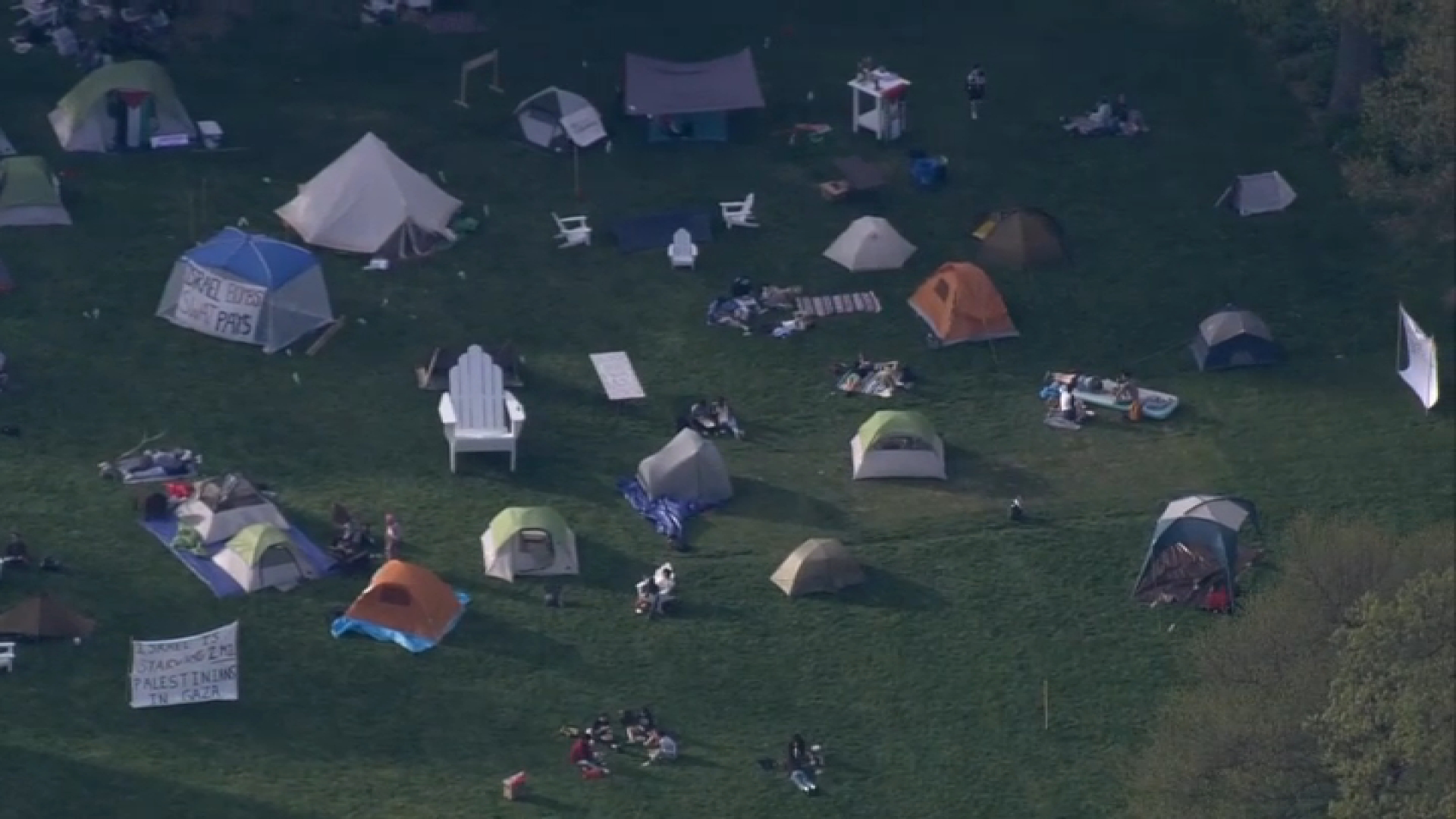“Pagan.”
That’s how the leader of Philadelphia’s 1.5 million Catholics referred to “many self-described Christians.”
Archbishop Charles Chaput made the controversial comment while calling for a “new evangelization” during a 3,000-word speech delivered last Saturday at the Junipero Serra (a 19th Century Franciscan priest who is credited with establishing missions in California) International Convention in Mallorca, Spain.
Here’s the quote from the speech as it was posted online by the Philadelphia Archdiocese:
“A new evangelization must start with the sober knowledge that much of the once-Christian developed world, and even many self-described Christians, are in fact pagan. Christian faith is not a habit. It’s not a useful moral code. It’s not an exercise in nostalgia. It’s a restlessness, a consuming fire in the heart to experience the love of Jesus Christ and then share it with others -- or it’s nothing at all.”
To many, it is the term “pagan” that stands out.
“Now when we think of the term pagan we tend to think of Romans in togas having sexual orgies and eating grapes and chasing dancing girls and all that stuff out of Hollywood,” said Lawrence Cunningham, John A. O'Brien Professor of Theology (Emeritus) at Notre Dame University.
Local
Breaking news and the stories that matter to your neighborhood.
Cunningham and other theologians NBC10.com spoke to however, said the word has many other meanings besides just heathenism.
Pagan can mean anyone who isn’t a believer, anyone who doesn’t practice Catholicism or even a term some Catholics who believe in a more ethereal interpretation of the religion use for themselves.
“The word pagan can mean several things to different Catholics in different contexts,” said Father James Halstead, associate professor & chair of the Department of Religious Studies at DePaul University. “In my university here when people claim to be pagans or neo-pagans they claim to be very spiritual, very religious and very moral.”
“It is not always a disparaging term,” added Priest Michael Driscoll, theology professor and co-director of the sacred music program at Notre Dame University.
The audience of Serra members -- mostly men highly involved with the church -- view God differently, according to experts.
During Serra’s time it meant “the others” -- anyone who wasn’t a devout Catholic, according to Driscoll.
“You have to look at it in the context of that whole six-page talk,” said Halstead. “He’s speaking to a group of Catholic people who are of the relatively conservative theological stripe… So pagans are all those people who would not be like him or his audience.
“He’s contrasting Christians to pagans… for him, in this context, pagan means anybody who does not affirm the doctrinal and moral teachings of the Catholic bishops of the world.”
Halstead said Chaput, a conservative, was playing to the crowd.
The choice of words by Chaput wasn’t lost on Rev. Mark Morozowich, associate professor of Liturgical Studies and Sacramental Theology and dean of the School of Theology and Religious Studies at the Catholic University of America.
“Hopefully you would take a challenge to it,” Morozowich said. “(Ask), ‘am I living a good life, am I really living my Christian life?’ which is the rhetorical aim that I think that Archbishop Chaput was aiming at -- not to condemn, not to point a finger -- but to challenge, to live this life in Christ more fully.”
Chaput leads a Diocese that is spread throughout the five-county Philadelphia region. In the speech, he also warns against the “radical self-focus and practical atheism -- not by refuting faith in God, but by rendering God irrelevant to people’s needs and urgencies of the moment.”
“Archbishop Chaput is trying to encourage people to live their faith in an alive way,” said Morozowich.
Part of that faith is the new evangelization, which Morozowich says is “the realization that we need to be attentive to people that have probably been baptized as a child but have never been much brought up in the faith or really need to be brought alive to a whole new understanding of who God is and who they are.”
The speech may have been a rallying call, but the term pagan could still rub some the wrong way.
“In the common currency, words have a certain balance, they have a certain weight and the words that he’s using could broadly be taken as judgmental,” Cunningham said. “It might be that he wanted to be a bit provocative to get people to think about the fact that there are large numbers of Catholics in the secularized society not Catholic at all but actually pagan in that sense of the word.”
Philadelphia Archdiocese spokesman Kenneth Gavin said that Chaput would not respond to a series of questions from NBC10 including what Chaput’s goal was in using the word “pagan” and what Chaput would say to a parishioner who might take offense.
In his speech Chaput urged that people don’t allow for social media and mass entertainment to take the place of solitude and personal reflection that Serra practiced. He then put out to challenge for Christian leadership.
“Mastering the new social and demographic data that describe today’s world, and the new communications tools to reach it, are vitally important for the Church. But nothing can be accomplished if we lack faith and zeal ourselves. We -- and that means you and I -- are the means God uses to change the world. The material tools are secondary. People, not things, are decisive,” Chaput said.
“As a good orator one wants to call things to mind and one wants to challenge," said Morozowich. "As I read (it) I think the Archbishop is challenging us to question and to see ‘do we believe or do we not believe? Do we say that we are Christians?’ What are the implications?”
The idea of trying to add more Christianity in one’s life was something that Tom Shakely, Vice President & Founder of Philadelphia Catholic League Alumni Corps also mentioned.
“I would personally take it to mean that Christianity is sort of a challenge, it’s a personal challenge, it’s a statement of belief about the world and what we’re supposed to do within it civilly, socially, morally, personally, etc.”
Shakely says his group has members ranging from “traditional weekly churchgoing Catholics to people who just consider themselves more socially Catholic.”
He felt Chaput’s words hit a nerve.
“I think it’s a candid and fresh assessment of where Christianity is -- at a crossroads in the country right now,” Shakely said.
Morozowich furthered the battle call.
“Chaput is calling us to live radically the wonderful message of Jesus Christ.” Morozowich said this is an idea in the church that goes all the way up to Pope Francis.
But the choice of words used likely wouldn’t.
“Here’s a little test you could use,” said Cunningham. “Would Pope Francis use that language? My inclination is to think that he probably wouldn’t.”
Other also questioned the choice of using “pagan.”
“In my dual role as both pastor and theologian… I want to be very careful with the words I use in public so I’m much more circumspect in my use of language,” said Halstead.
However, Halstead appreciates the candor.
“It’s kind of nice that the leader says exactly what he thinks. You certainly know where he stands,” he said.



